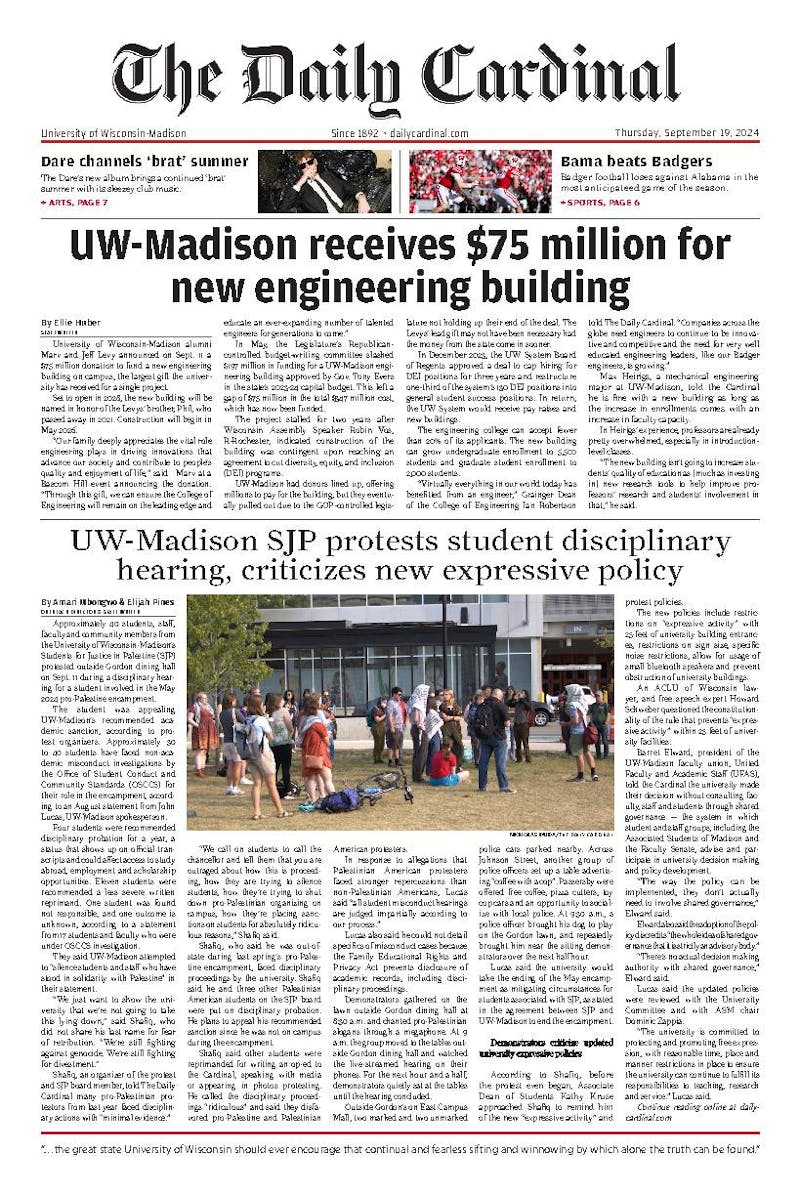WASHINGTON'In a single day, the terrorist attacks on New York and the Pentagon transcended decades of debates between the parties over the proper use of American military force, uniting liberals who resisted deployments from Vietnam through the Persian Gulf War and conservatives who opposed interventions in Haiti and the Balkans.
But the underlying divisions between' and, just as important, within'the parties over the proper use of force could reopen in the months ahead as the Bush administration's battle plan for confronting global terrorism emerges, analysts in both parties agree.
'Right now, nobody wants to stand out in front and make a big issue of this, but behind the scenes you can see some fissures,' says Kim Holmes, director of foreign policy studies at the conservative Heritage Foundation.
The administration is already under pressure from leading conservatives to expand its targets beyond Osama bin Laden and his sponsors in Afghanistan'while some leftist voices are rallying against a sweeping military response that risks significant civilian casualties abroad. Many analysts say those contradictory pressures could produce cracks in the unity if the campaign expands beyond bin Laden.
While the consensus for using force today is strong, 'the elements in our political system (that are skeptical of using force) are still there,' said Sen. John McCain, R-Ariz. 'You may see their re-emergence. That's why the president and his team ... have a very significant task ahead of them.'
Even inside the administration, some senior officials believe the political reaction will turn on whether any military mission can be tied to the attacks of Sept. 11. As one official put it, there is likely to be enormous public support for retaliation against organizations or states directly linked to the attacks; resistance is more likely to return if the administration deploys military force against states, potentially Iraq or Syria, that have supported terrorist activities in the past but may or may not be tied to this attack.
Such military action is exactly what a broad coalition of conservative leaders urged President Bush to pursue in an open letter last week, calling for 'a determined effort to remove Saddam Hussein from power in Iraq' and even 'appropriate measures of retaliation' against Iran and Syria if they refuse to cut their ties with the anti-Israel terrorist group Hezbollah.
But the wider the range of targets, the more likely the resurgence of domestic resistance, analysts in both parties say.
At the moment, the prospect of military action is provoking objections from only a handful of grass-roots liberal activists and a few conservatives, like former presidential candidate Patrick Buchanan, who are ideologically hostile to expansive American intervention abroad.
In a Gallup/CNN/USA Today survey released Monday, 89 percent of adults said they supported a military retaliation. By comparison, most Americans opposed the use of force in the Persian Gulf War and in Kosovo virtually until the moment the shooting began. Even as early as September 1965, a quarter of Americans told pollsters it was a mistake to send troops to Vietnam.
In building this consensus for force, Bush may also be benefiting from an evolution in both parties' thinking about military action.
The change has been most dramatic on the Democratic side. For years after Vietnam, many Democrats consistently resisted the use of U.S. force abroad as either counterproductive, morally tainted or too costly for the ends at stake. As late as 1991, more than two-thirds of congressional Democrats voted against the resolution authorizing President George H.W. Bush to use force to evict Iraq from Kuwait.
'The stance the party assumed after the Vietnam War ... was that almost any use of American force was illegitimate and almost immoral,' said Will Marshall, executive director of the Progressive Policy Institute, a centrist Democratic think tank.
But in the 1990s, President Clinton slowly built a consensus in his party for military intervention to fight human rights abuses in places such as Bosnia. That 'liberal interventionism' carried the party back to its pre-Vietnam tradition of backing an aggressive global role for America'albeit for a post-Vietnam cause of promoting human rights.
Although the rationale was new, many say the effect was to coax the Democrats away from the reflexive hostility to force that characterized the party after Vietnam; in that sense, the Clinton interventions in the 1990s may have functioned like a bridge between the broad Democratic resistance to the Persian Gulf War and the party's near-unanimous support for military retaliation now.
While the center-left embraced intervention on behalf of human rights in the 1990s, conservatives recoiled. Majorities of House and Senate Republicans voted against the American missions in both Bosnia and Kosovo.
In both the House and some conservative intellectual circles, that skepticism stoked a broader opposition to U.S. involvement abroad reminiscent of the isolationist views that were common in the GOP until World War II. Resistance to that tendency forced internationalist Republicans like McCain and President George W. Bush to develop a case for continuing involvement abroad.
With differing nuances, these 'realist' Republicans have produced a synthesis that supports American engagement, but in a way that de-emphasizes human rights concerns and focuses more on 'enduring national interests,' as Bush put it in the 2000 campaign.





